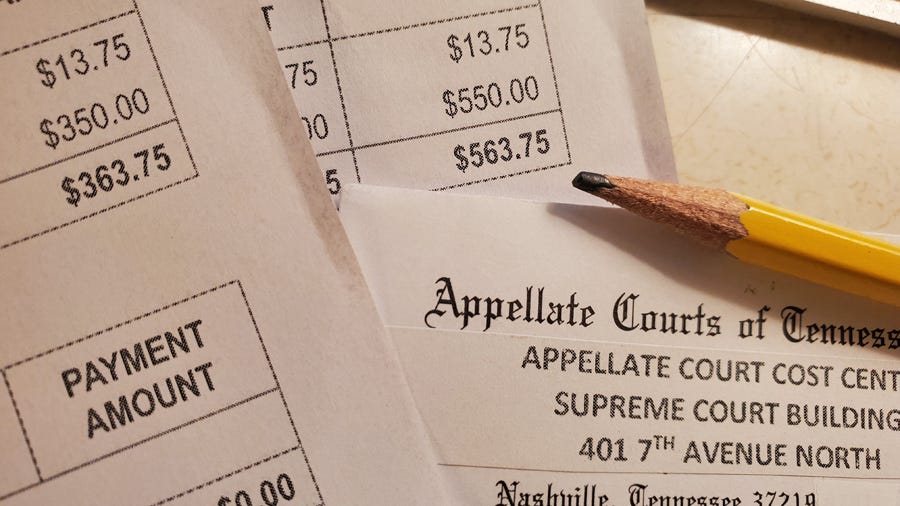Judges accept pauper's status in loan shark case, send him F$930 bill
Enemies prevail as justices refuse to take first-impression case seeking ruling, ban on MCAs, or merchant cash advance frauds raping small businesses, borrowers in Tennessee

CHATTANOOGA, Tenn., Friday, April 26, 2024 — The Tennessee court of appeals accepted my application to file in forma pauperis at the beginning of my counterattack in Tennessee against predatory lenders called MCAs.
Merchant cash advance is the type of business, dressed up as "factors" or "advance purchasers of future receipts" in business.
Payday lenders for business, in other words. Check Into Cash for companies.
I petitioned that I was too poor to pay the freight of entry fees, and the court of appeals accepted my filing.
Three judges in the court of appeals gave MCAs support on technical grounds (late notice of appeal) while ignoring the powerful claims. I insisted a suit by Flexibility Capital was void from inception because of fraud and violation of the usury law. Five members of the supreme court refuse to accept my applicaiton for a hearing even though the court of appeals bellyflopped over Rule 60.02, which lets void cases be stricken.
The justices refused to even hear the proper petition to forbid the likes of Flexibility in New York from extending 208.05 percent per annum interest loans.
Ruined by CV-19 in my radio business, unable to recover financially in business or personally, I filed for recognition of my impoverished state in appealing unjust rulings by Hamilton County circuit court judge Kyle Hedrick. "If I don't have subject matter jurisdiction," he said, "the court of appeals will let me know lickety split."
Now the Tennessee supreme court sends me two bills for both appeals totalling F$930, including for each bill a F$13.75 state litigation tax that I wouldn't owe because I am not an attorney in the law business under privilege.
How can a pauper pay such claim after the court, at the beginning, admits I am poor?



